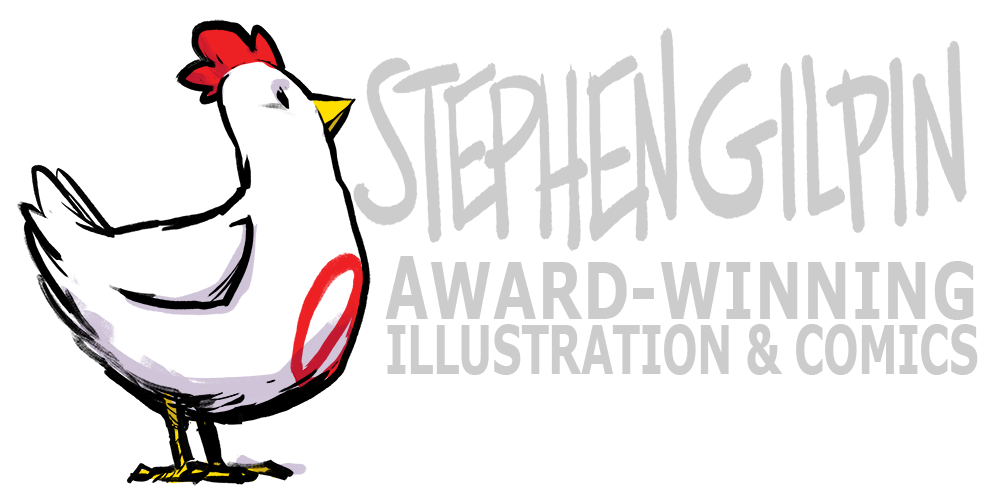Drawing:
Learning to draw has as much or more to do with how you THINK about your subjects as it does with how much you might practice. Here are some things that have really helped develop my own thinking process and/or resonate with how I approach that initial method of bringing ideas into this world of form (isn't that a fancy way to think about drawing?).
Will Weston's Drawing America classes. I got a seven session class for around $95. It's amazing. I thought I knew the figure. I didn't.
Bridgman's Complete Guide to Drawing from Life by George Bridgman. Classic and essential.
High-Focus Drawing by James McMullan. Jim taught me that drawing (and art) is as much or more about HOW you see as it is WHAT you see. Check out my deep thoughts on Jim McMullan, drawing and growing as an artist here.
FORCE Drawing online instruction videos/courses by Mike Mattesi. Mike would come into our High-Focus Drawing classes sometimes and draw with us while I was at SVA, and he later would teach there. He offers his own spin on the method in a whole bunch of video tutorials. It's definitely worth checking out.
Painting and Color:
With Painting and Color, you really have two main issues you're dealing with-- the media you're using (oil, watercolor, your sisters' old crayons, Photoshop, etc.), and deciding what colors to use. Media is going to be pretty specific, but learning how to use color will help equip you with whatever medium you're using.
Our Painted Lives Youtube Channel with Nicolás Uribe. Nicolás was a classmate of mine. I learned as much from him as I did the teacher. Learn color. Learn oil painting. His narration is awesome. You can probably count this as an art appreciation AND painting class.
Schoolism is a great (and freakin' cheap) way to get some seriously hi-end classes. I took Dice Tsutsumi and Robert Kondo's digital painting course, and it helped form the way I approached my digital illustrations. I also took Nathan Fowkes' plein-air watercolor course. Also very good. Now I have a little watercolor kit I take with me when I go places I think I'll need some activities to keep me entertained (pretty much everywhere I am expected to sit down).
Illustration:
Revealing Illustrations by James McMullan (good luck finding a cheap copy of this)
Framed INK: Drawing and Composition for Visual Storytellers by Marcos Mateu-Mestre. I got this book when I started drawing graphic novels a few years ago now. VERY helpful on helping me think about dynamic compositions. It's geared for comics and storyboards, but I think that the compositional ideas he communicates are probably helpful for any artist.
Writing:
When I graduated art school, all I had any confidence doing was drawing, painting and cartooning. I was not a writer and writing seemed like such a nebulous mystery (aside from grammar -- I had a pretty ok handle on that). Below are some books that helped me break through the "myst".
The Comic Toolbox by John Vorhaus. I got this book to help me write the Pedro comic strip I do for Boys' Life Magazine. I still use it. Secrets of Story by Matt Bird. This book helped immensely in how I approach major writing projects.
On Writing by Stephen King. I'm not a Stephen King fan, but this is easy to read and helped me get started on a novel-sized project. After this book, I read "The Stand" (well, I listen to it like almost everything I "read"). I'm still not a fan. This book is still well worth it if you're like me and have no idea what the crap you're doing as a writer.
Life as an Artist:
This is a fantastic artist mentoring program I've been a part of. It takes a holistic approach to life as an artist from growing in your craft to connecting with your audience, and most importantly, advancing spiritually and mentally throughout the process. matttommeymentoring.com
